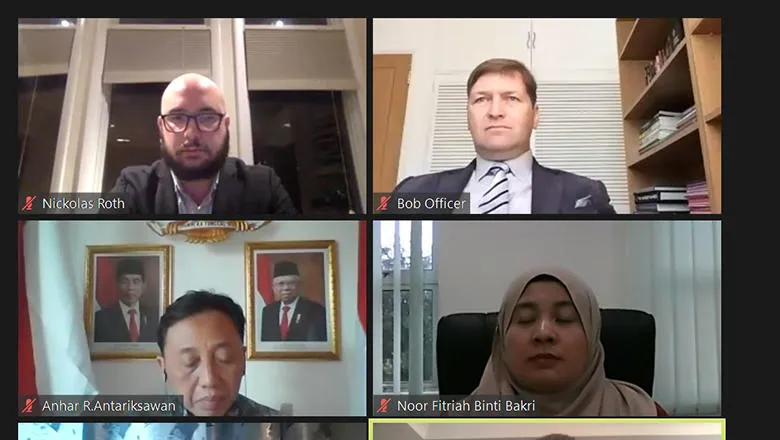Delivering Nuclear Security During Times of Crisis
An international panel of experts from government, industry and NGOs will explore issues surrounding nuclear security during...
16 October 2020
During the current pandemic, how can the nuclear industry continue to protect the health of staff and sensitive nuclear assets?

The Nuclear Security Culture Programme (NSCP), managed by the UK's Department for Business, Energy and Industrila Strategy (BEIS) and led by the Centre of Science and Security Studies (CSSS) at King’s College London (KCL), recently organised a side event to the 64th International Atomic Energy Agency (IAEA) General Conference.
The event put the spotlight on the impact of COVID-19 and its effect on nuclear security globally. Discussions especially revealed how remote working and assessment, online training, cross-border partnerships and learning lessons from previous crises have an important role to play in maintaining nuclear security worldwide.
Dr Christopher Hobbs, Co-Director of CSSS, chaired the session with Philip Richards and Angus Girling from the Global Nuclear Security Programme Nuclear Directorate at BEIS. The panel included international experts from non-governmental organisations, nuclear operators and regulatory authorities, including Nickolas Roth, from the Nuclear Security Programme at the Stimson Center, Noor Fitriah Binti Bakri, from the Malaysian Atomic Energy Licensing Board, Anhar R Antariksawan, from the National Nuclear Energy Agency of Indonesia (BATAN), Nataliia Klos, from the Ministry of Internal Affairs of Ukraine, and Bob Officer, from the International Nuclear Services (UK).
Kicking off the discussion, Nickolas Roth noted that: ‘Strong security culture is especially important during time of crisis. Key lines of authority and communication are crucial for organisational resilience and adaption as are regular and realistic training for security personnel.’
Before elaborating on this, he referenced historical cases, including nuclear security in Russia in the 1990s following the collapse of the Soviet Union, the Fukushima disaster in Japan in 2011 and more recent incidents in the United States and Belgium.
The session also provided different national organisational perspectives from specialist practitioners who have been directly involved in implementing nuclear security.
Fitriah Bakri explained: ‘We are looking to work with the IAEA and other international partners in developing more guidance in observing good practices in performing regulatory measures in facing COVID-19 challenges and beyond.’ Anhar R Antariksawan added that e-learning during the pandemic has been important for building the capacity for security culture in Indonesia.
To end the session, Bob Officer noted that there has been a change in cyber threats with state and non-state actors shifting and modifying their activities in an effort to take advantage of the move to remote working.
Watch the full recording of discussions on the CSSS YouTube page.
An international panel of experts from government, industry and NGOs will explore issues surrounding nuclear security during...